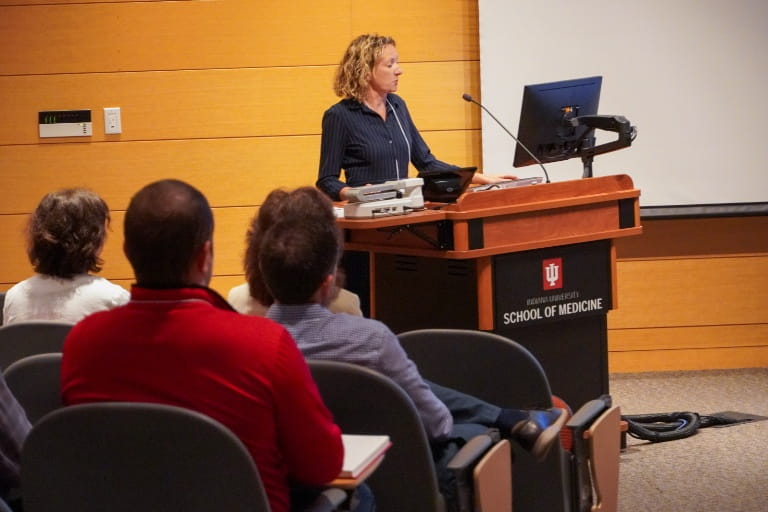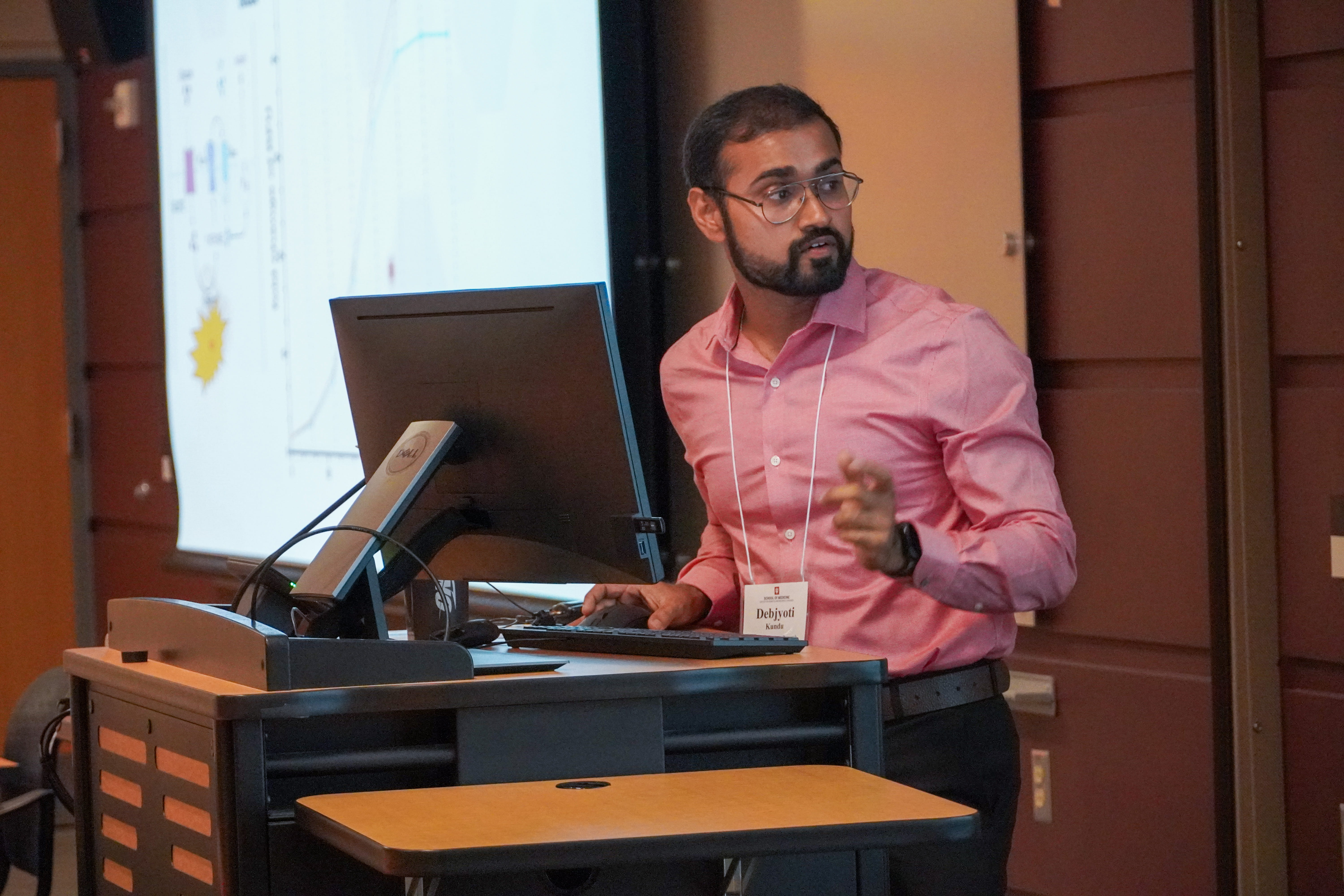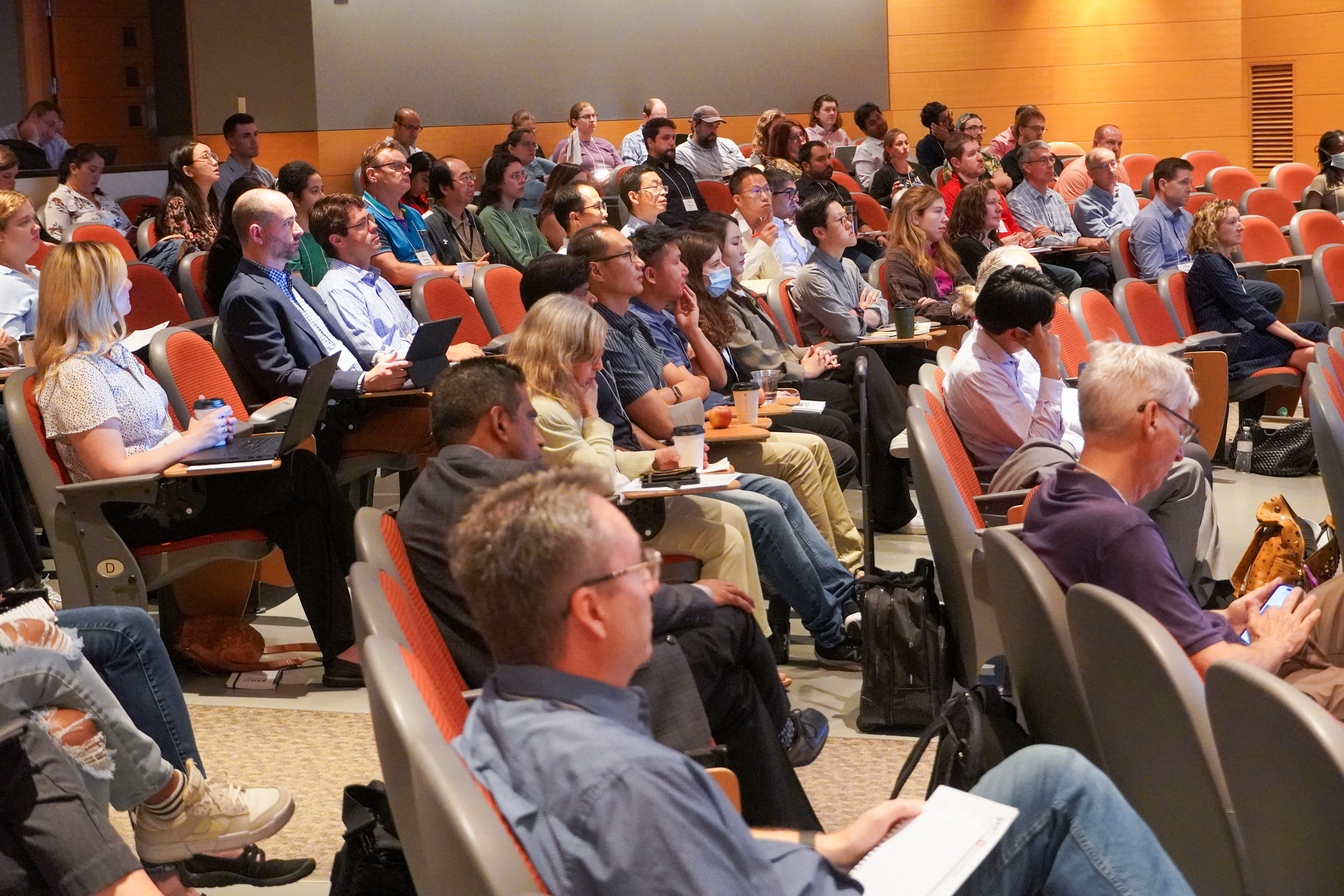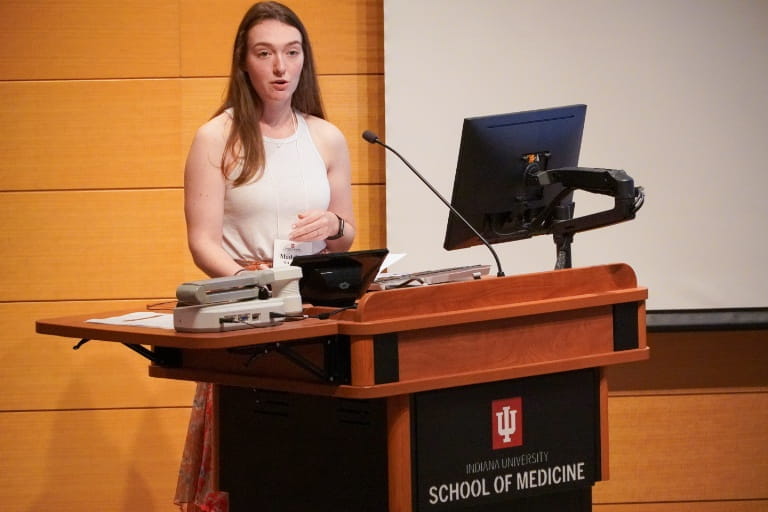The Indiana University Center for Diabetes and Metabolic Diseases aims to expand and integrate research in diabetes, obesity and metabolic diseases. Launched in 2014, the annual Diabetes Symposium is a key component in serving this mission.
At the annual event, nearly 200 attendees are immersed in an enriched learning environment that celebrates the latest in scientific discovery. The symposium presents unique opportunities to learn from nationally recognized experts, discuss recent scientific breakthroughs and forge relationships with potential collaborators.




